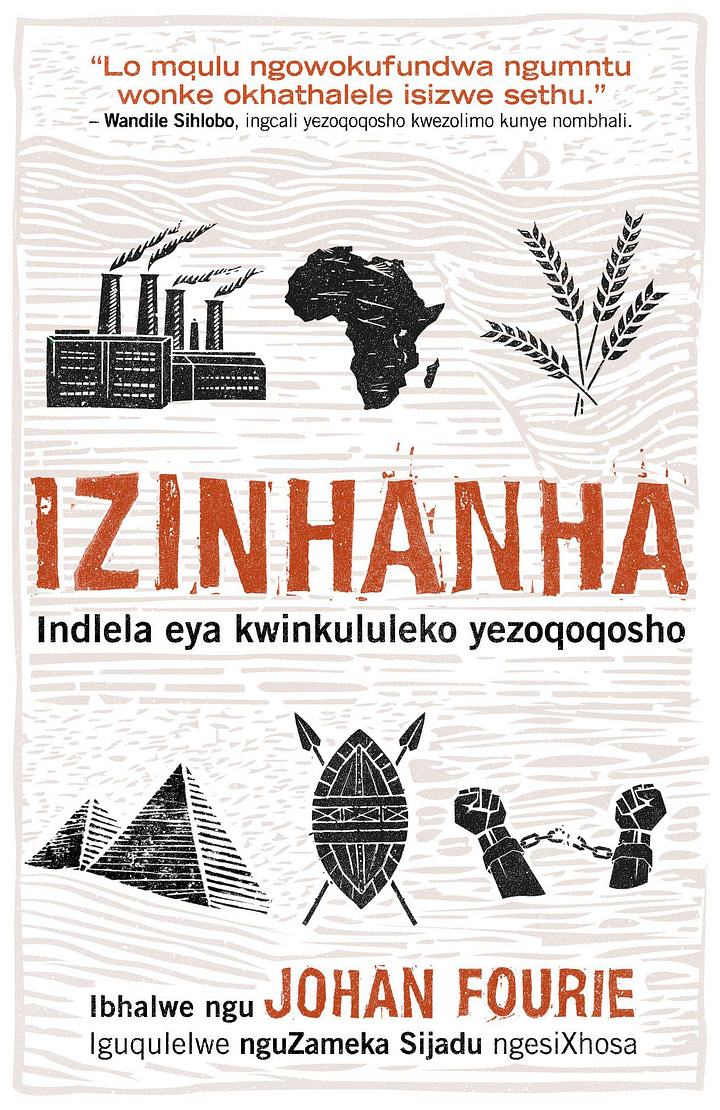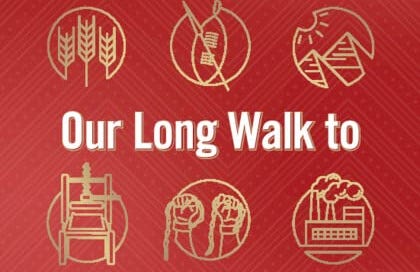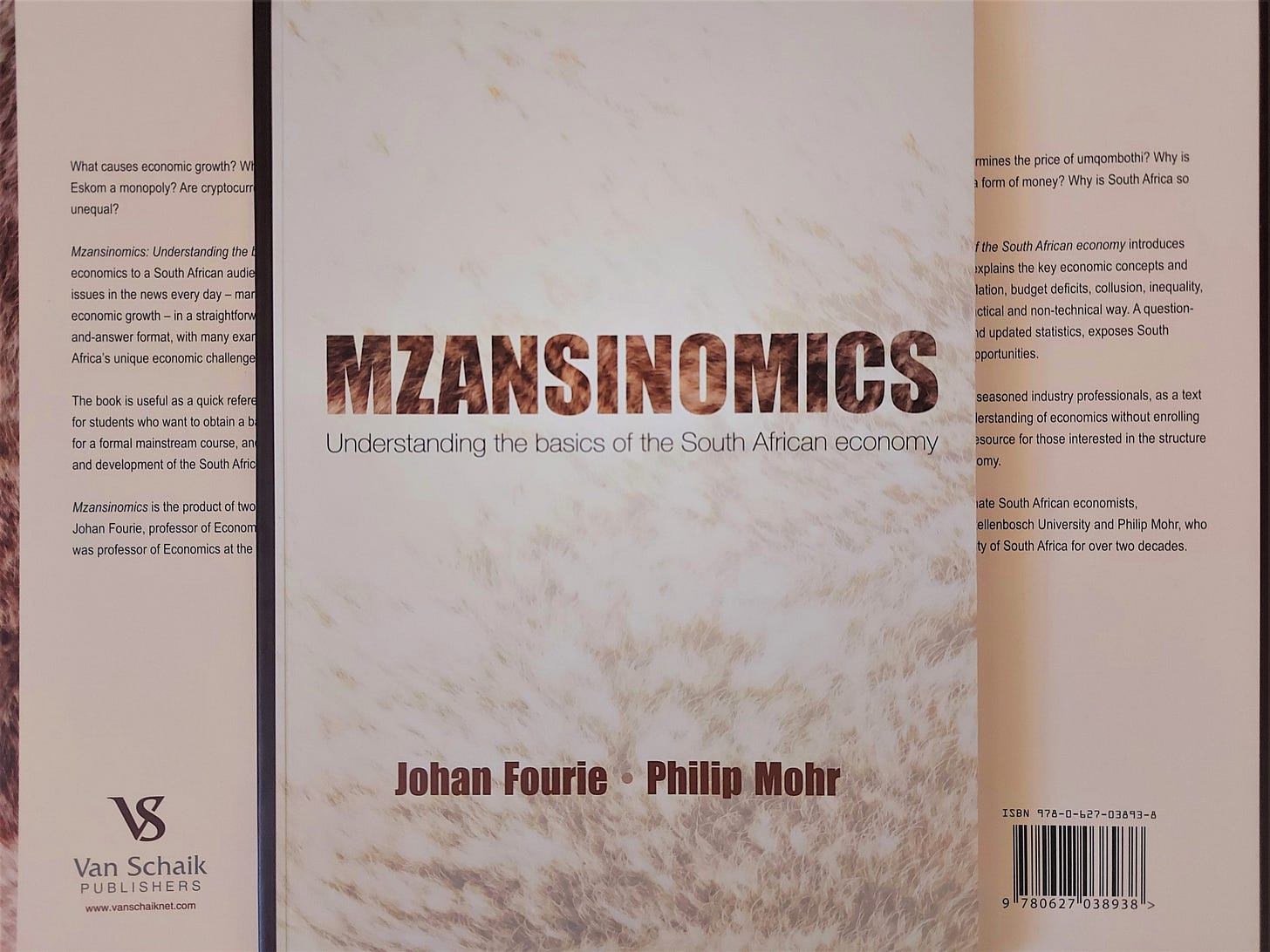Books




Our Long Walk to Economic Freedom
My first book, and the inspiration behind my blog’s title, is an entertaining and engaging guide to global economic history told for the first time from an African perspective. In thirty-five short chapters, I tell the story of 100,000 years of human history spanning humankind’s migration out of Africa to the Covid-19 pandemic. Each chapter asks an unexpected question, such as ‘How could a movie embarrass Stalin?’, ‘Why do the Japanese play rugby?’ and ‘What do an Indonesian volcano, Frankenstein and Shaka Zulu have in common?’. The book sheds new light on urgent debates about the roots and reasons for prosperity, the march of opportunity versus the crushing boot of exploitation, and why it is the builders of society – rather than the burglars – who ultimately win out.
It was first published by Tafelberg in South Africa in 2021. An international (expanded) edition was published by Cambridge University Press in 2022. It has since been translated into Afrikaans (Skatryk), published in 2023, and a free isiXhosa edition (IziNhanha) in 2024. An updated edition of the English South African edition is scheduled for 2024.
For reviews, slides and more, visit my home page.
Quantitative History and Uncharted People: Case Studies from the South African Past
One of the biggest challenges in the study of history is the unreliable nature of traditional archival sources, which often omit histories of marginalised groups. This book makes the case that quantitative history offers a way to fill these gaps in the archive.
Showcasing 13 case studies from the South African past, it applies quantitative sources, tools and methods to social histories from below to uncover the experiences of unchartered peoples. Examining the occupations of slaves, victims of the Spanish flu, health of schoolchildren and more, it shows how quantitative tools can be particularly powerful in regions where historical records are preserved, but questions of bias and prejudice pervade. Applying methods such as GIS mapping, network analysis and algorithmic matching techniques, it explores the histories of indigenous peoples, women, enslaved peoples and other groups marginalised in South African history.
Connecting quantitative sources and new forms of data interpretation with a narrative social history, this collection of essays offers a fresh approach to quantitative methods and shows how they can be used to achieve a more complete picture of the past.
Bloomsbury Academic | Aug 2023 | ISBN: 9781350331167 | 384 pages
Mzansinomics
What is money? What determines the price of umqombothi? What is a monopoly and what can be done about it? What explains the differences in wealth between Sandton and Soweto? What is a fiscal cliff and is South Africa heading towards one?
Mzansinomics introduces economics to a South African student audience. It explains the key economic concepts and issues in the news every day – markets, inflation, budget deficits, collusion, inequality, economic growth – in a straightforward, practical and non-technical way. A question-and-answer format, with countless examples and updated statistics, exposes South Africa’s unique economic challenges and opportunities. Mzansinomics is therefore not only useful as a quick reference for seasoned industry professionals (or as an ideal text for students who want to obtain a basic understanding of economics without enrolling on a formal mainstream course) but also to anyone interested in the structure and development of the South African economy.
Van Schaik Publishers | 2021 | ISBN: 9780627038938 | 216 pages
Life under Lockdown: An anthology of Stellenbosch student Covid-19 diary entries
When the Covid-19 virus spread to South Africa in March 2020, President Cyril Ramaphosa announced a national lockdown. Universities closed and students were required to move back home at short notice. To record their experience of living through this unprecedented period, students in one Economics class at Stellenbosch University kept a diary during the first month of lockdown. The 333 diary entries in this anthology reflect the diversity of experiences and reactions of this relatively privileged group of students.
From the humdrum of everyday life to anxiety about lost incomes, societal inequality and the physical, mental and economic health of the nation, the diary entries reveal the hopes and fears of young people during a time of crisis. The purpose of the anthology is twofold: to preserve these thoughts so they can be integrated into future historians’ accounts, and to help a generation that continues to experience the painful effects of a pandemic and of lockdown to think about how our perceptions have evolved and how much has changed in such a short time.
African Sun Media | February 2022 | ISBN: 978-1991201645 | 166 pages






